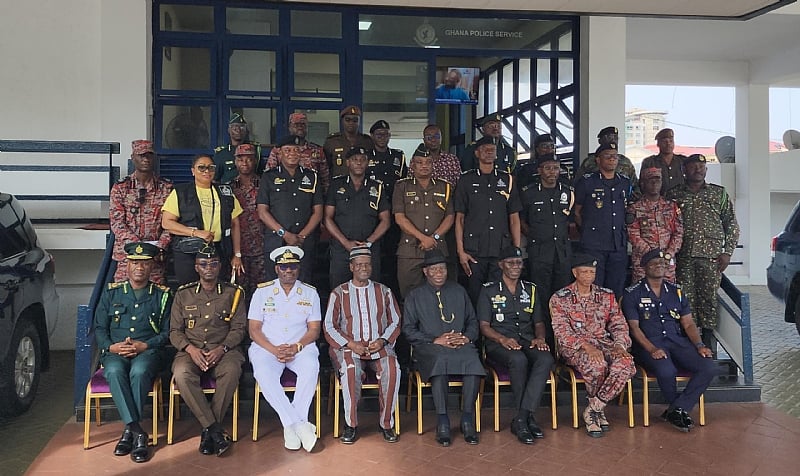Former Nigerian President Goodluck Jonathan has praised Ghana for its exemplary democratic practices, which he believes serve as a model for the African continent as the country approaches its general elections on December 7. Jonathan, who is the current leader of the West Africa Elders Forum (WAEF), convened a meeting with Ghana’s National Election Security Task Force to discuss strategies to ensure violence-free elections. During his address, he highlighted the credibility of Ghana’s electoral system, emphasizing that the country’s democratic standards are set high, particularly within the West African region. His remarks reflect a profound respect for Ghana’s longstanding commitment to democratic governance, positioning it as a pioneering example for neighboring nations striving to enhance their electoral processes.
In the context of his visit, Jonathan expressed confidence that the upcoming 2024 elections would be the most peaceful in the nation’s history. This optimism stems from the expertise and dedication of the members of the National Election Security Task Force, whose plans aim to foster a conducive environment for a fair electoral process. The pre-election consultative meeting not only aimed to brief WAEF on the preparations undertaken by the security task force but also reflected a commitment to collaborative governance in ensuring stable and transparent elections. Goodluck Jonathan’s involvement and window into the electoral preparations signify the importance of regional elder statesmen in monitoring and promoting democratic norms within West Africa.
The National Election Security Task Force, under the leadership of Dr. George Akufo Dampare, Inspector General of Police, is dedicated to improving electoral security compared to previous election cycles. Dr. Dampare reassured both Ghanaians and the international community of the advancements made in securing the electoral process, pointing out the cooperative efforts between law enforcement, political entities, and various stakeholders. He stressed that a collaborative approach among political parties, the Electoral Commission, civil society organizations, and the general public is crucial for achieving peaceful elections. This aggregation of responsibility among diverse societal segments is seen as pivotal in instilling trust in the electoral framework.
Dr. Dampare further emphasized the role of each stakeholder in maintaining a safe electoral environment, urging unity and collective action against any possible threats to the election’s integrity. He presented a call to action for political stakeholders to participate actively in this process and share the burden of ensuring peace. The acknowledgment of the public’s role indicates a broader understanding that successful elections rely not solely on government or enforcement agencies but also on the engagement of citizens and groups committed to democratic ideals.
The discussions highlighted during the consultative meeting showcase a deep understanding of the multifaceted challenges that elections often face, including potential violence, unrest, and misinformation. The proactive measures taken by the National Election Security Task Force suggest an instinctive approach to governance that aims to preclude crises before they manifest. By championing a transparent and united strategy, the task force hopes to foster confidence among voters, further bolstering democratic participation and enthusiasm for the electoral process.
Jonathan’s commendation of Ghana’s electoral integrity resonates beyond the confines of this election cycle; it signifies a broader narrative about the resilience of democracy in West Africa. His acknowledgment serves to inspire civic pride among Ghanaians and indicates a commitment to fostering peace and democratic values across the region. As nations in West Africa grapple with democratic challenges, Ghana’s approach and Jonathan’s support reflect a shared aspiration for stability and responsible governance—a vision that extends past the December elections and into the long-term evolution of democracy on the continent.














